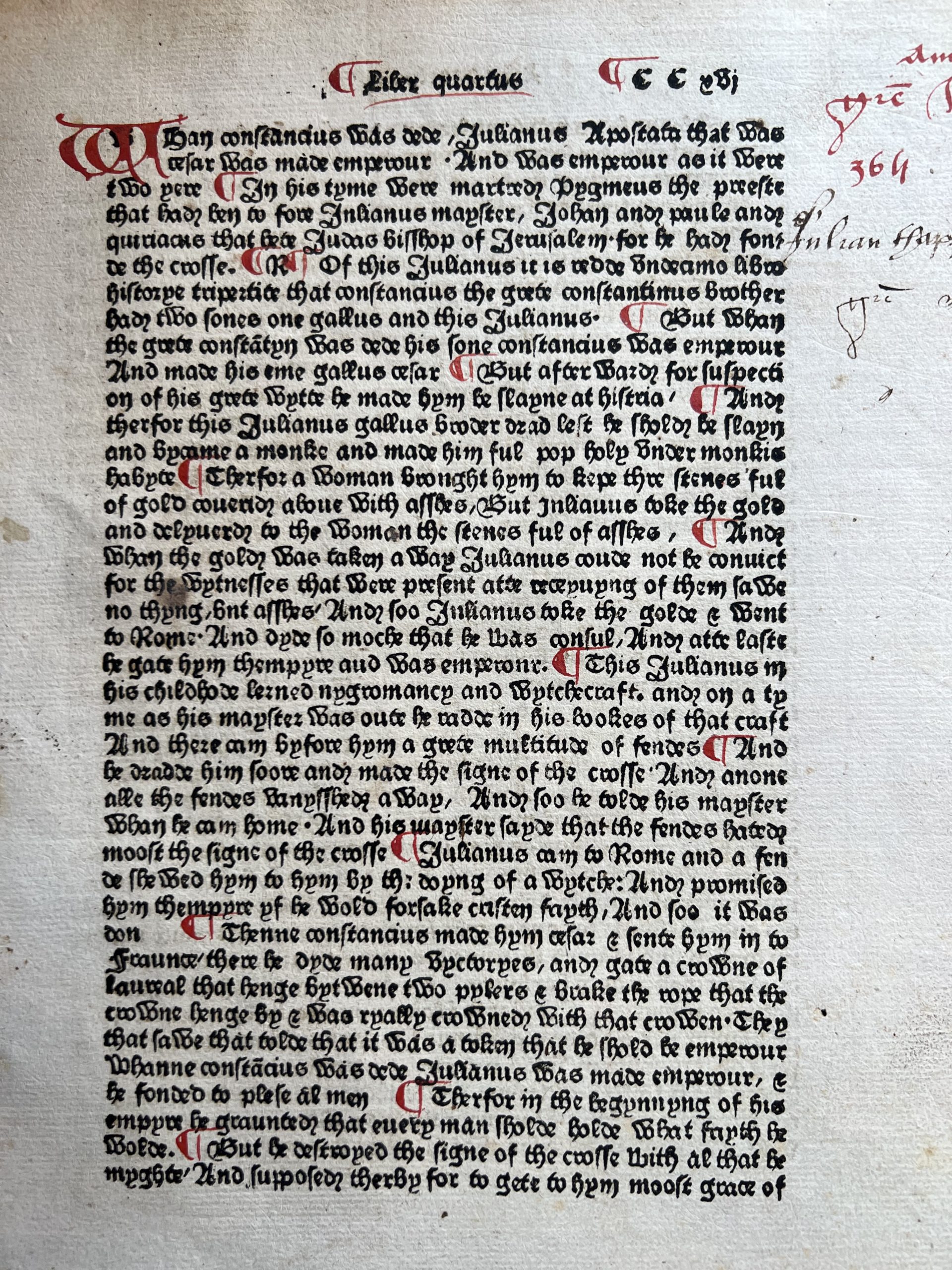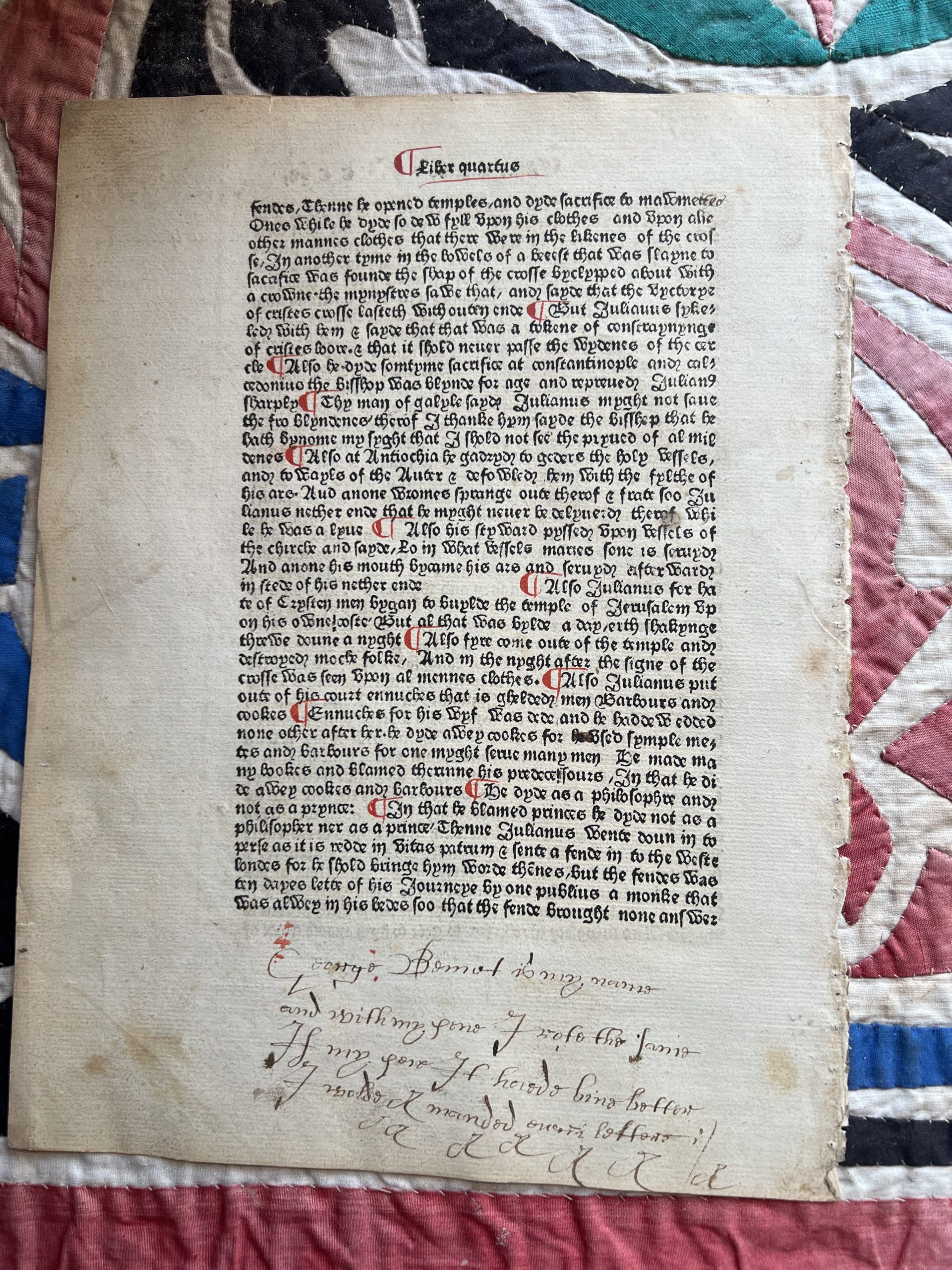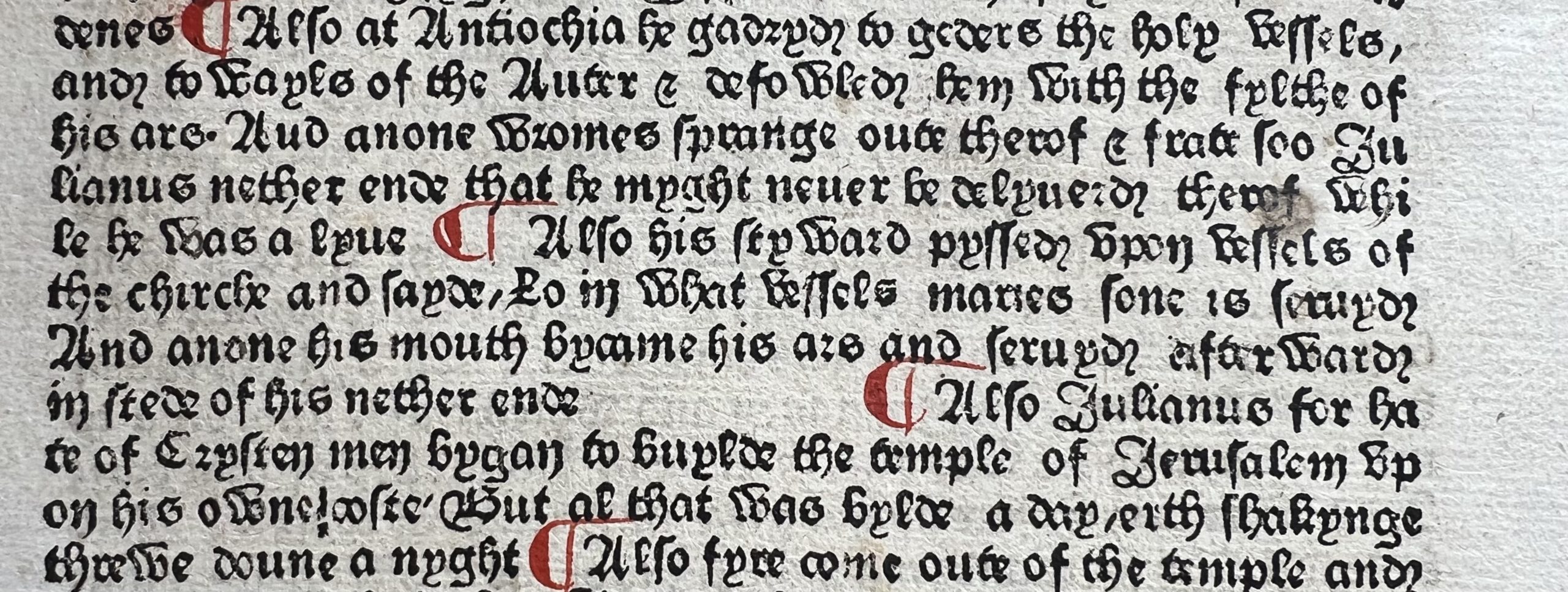I recently obtained a new treasured item to share on my tours, and used it last Friday for the first time on my Victoria’s Values walk.
It’s a single leaf, printed by William Caxton in his print shop – the first in England – in 1482. The book was called the Polychronicon and was an English translation of a 14th century history of the world by an English monk called Ranulf Higden.
It’s in English – with hand rubrication (red ink additions) of sentence first letters. See if you can make it out – the first line reads
“When Constantius was dead, Julianus Apostata (Julian the Apostate) that was before was made emperor.”


Caxton had imported the new technology from the continent in 1476 and his press shop was set up right next to the entrance to Westminster Abbey,
I was so happy to obtain it as it is a perfect item to show as I pass by the Abbey and talk about the history of this revolutionary technology and its impact on the world.
One of the most interesting things is the actual content of the page, which is about the fascinating Roman Emperor Julian the Apostate. (emperor 361-363 CE).
He was infamous for being raised as a Christian, but committing the mortal sin of apostasy and reverting to the pagan faith.
The document was written clearly to demonstrate the consequences of this – as shown in this section here. Transcription is below – apologies in advance for the language.

“Also at Antioch he gathered together the holy vessels and towels of the altar and defouled them with the filth of his arse. And anon worms sprang out thereof and frate so Julian that he might never be delivered of them while he was alive. Also his steward pissed upon vessels of the church and said Lo in what vessels Mary’s son is served. And anon his mouth became his arse and and served afterward instead of his nether end.”
If you want to see and even handle this precious item yourself, come on one of my Fleet Street or Victoria tours – you won’t be disappointed.




